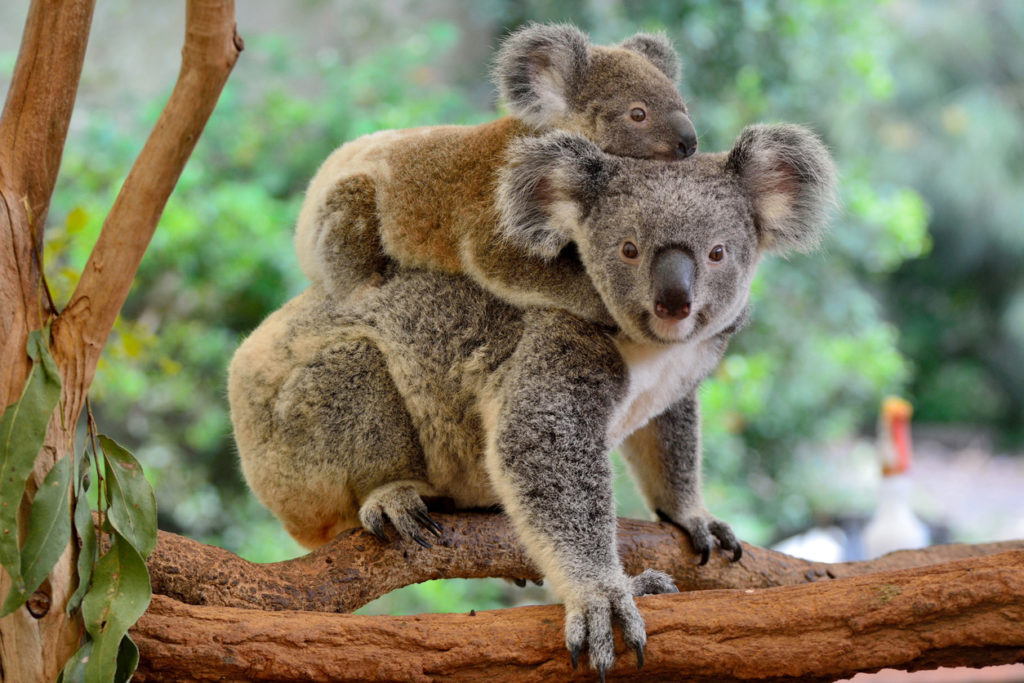Moving to Australia: 11 Tips you Need to Know
Australia is one of the most popular migration destinations, known as the land of opportunities. Moving to Australia or down under can be a challenge, you may have heard mixed experiences. Make sure you are prepared according to your circumstance. Here are 11 tips you want to know before you move.
1. Search your visa options
There are several different types of Australian visa. The most common visa options are student, skilled, or work and holiday. The best option will depend on your situation.
Student visa:
To qualify for a student visa, you must be enrolled in an Australian institution full time. Providers recommend English courses, vocational training and higher education programs. You can check education providers and registered courses by visiting the official Australian Government website, Commonwealth Register of Institutions and Courses for Overseas Students (CRICOS).
If you manage the process through a student agency, they will help you with the registration process and assist with requirements (such as student insurance). This visa allows you to work up to 40 hours per fortnight. However, you should check all current conditions on the official Australian Government website here.
Work and Holiday visa:
If you are looking to work full time, you should apply for a work and holiday visa. This visa allows people aged between 18 – 30 to have an extended holiday in Australia plus also have an opportunity to work unlimited hours.
You should be aware that Australian work and holiday just apply for some countries according to the passport holder of individual countries. Therefore, should the passport for your country not be eligible, look for another type of visa. Further information regarding work and holiday visas check here.
Skills visa:
The final visa option to be discussed is the skills visa. Although the process can be long and complicated, this is the best option if you are outside Australia. You will need to have an excellent level of English and want to work directly in your profession.
In this scenario, you should make sure that your profession is listed on the skills list in Australia in one of the Australian states or territories. You should apply for the visa as soon as possible as sometimes the skills list changes without notice. The rules for each state are different, so it is advisable to use an immigration agent.
Remember, check the Australian Government Department of Home Affairs website to view specific details of the various visa options available.
2. Education in Australia
Australian education is known for high academic standards. If you are moving to Australia, you can enrol in different programs such as English programs, vocational training and higher education. You can apply yourself directly, or you seek the assistance of a student agency.
Prices can change according to the city, the institutional ranking and even the country of your passport. You may wonder why nationality can change the cost is to assist institutions in ensuring they have students from different countries and achieve ethnic diversity quotas. It is common for institutions to provide discounts to certain nationalities to increase the registration of students from particular countries. It is also possible to obtain a scholarship to study in Australia.
3. Everyone has the same Work Rights
Jobs are available according to your abilities skills, education, experience and visa circumstances. Work can be full-time, part-time, casual or contract. All workers in Australia have the same rights and protections, regardless of citizenship or visa status.
The Fair Work Ombudsman, it is the government agency responsible for supporting and supervising compliance with labour laws. Wages are transparent, and there are laws across most industries which set minimum pay levels for different jobs. You can find information to compare payment across different roles and industry sectors. You will also find tools that may help you understand payroll discounts that may apply according to the type of job you have.
4. Finding a place to live in Australia
Australia has a wide range of living costs. The standard rule of thumb is that the main cities are more expensive and regional towns and areas are generally cheaper to live in but may have fewer employment and education opportunities.
You can rely on specialised portals such as Domain and realestate.com.au to buy or rent a property. Also, Facebook Marketplace, Gumtree and Flatmates, can assist in shared accommodation. These sites allow you to filter listings based on rent, city, room type, etc. Joining groups in the city where you are moving to on Facebook to identify groups and good rent options is a good idea.
But don’t forget…
Setting a little extra money aside is highly recommended to cover unexpected expenses. Additional accommodation costs include bond, cleaning, internet, utility expenses such as water, electricity and gas.
5. Staying in touch with your loved ones
Staying connected with your loved ones back home is one of the most important things when you move to Australia.
Even though Australia is an enormous country, telecommunications in Australia is well covered and relatively low cost. It has excellent broadband internet and mobile coverage in most populated areas of the country, including many regional areas.
Nearly everyone in Australia uses a smartphone, and you will need one to get around.
There are three major telecommunication operators in Australia, Telstra, Optus, Vodafone. Telstra has the most extensive coverage followed by Optus and then Vodafone. Your preference may be according to price, promotions or plans. Mobile plans can be either prepaid or contract and depending on the plan, and the mobile handset can get included for free. Also, many mobile plans now offer unlimited calls and data.
It gets better…
Remember, all Australian mobile networks support mobile number portability which means you can use the same mobile number on any mobile network if you decide to change in the future.
Basic General pricing options are:
Telstra
4G and 5g converge
Australia’s leading provider
Personal plans start from $50 per month with 15GB data per month included
Optus
4G and 5G coverage
Australia’s second-biggest provider
Individual plans start from $39 per month with 10GB data per month included
Vodafone
4G and 5G coverage
Different plans start from $40 per month with 10GB data per month included
Students options available providing extra data
There are also smaller telecommunication providers that use the Telstra, Optus and Vodafone networks.

Staying connected with your loved ones
6. How to get around in each city
Australia’s transport infrastructure is excellent and safe. Depending on the town, public transport options include bus, train, trams and ferries. Public transport operates in most cities and runs from about 5 am to midnight. There are concessions in some cities for the elderly, students and children.
The Google Maps application is the easiest and most reliable way to get around. Just your current location and where you want to go and Google Maps will offer you different alternatives, including public and private transport. We recommend checking your transport options before moving to Australia. There is where a smartphone helps!
There are also specialised websites in each significant city for you to search for transportation alternatives, schedules and prices. Such a Transport NSW, Public Transport Victoria, Trans Link, Transperth, Transport Canberra, Adelaide Metro, Transport Tas.
7. Health Care
Australia has a world-class healthcare system. When moving to Australia, you will need to take out health coverage from a government-approved provider.
These providers offer a range of alternatives and coverage, such as:
In Hospital Treatment: Accommodation, Accident and Emergency Services, Outpatient and Postoperative, Doctor Service;
Out of Hospital Treatment: Standard GP Consultation, Specialists, Pathology and X-rays; and
Waiting Periods: Pre-existing Psychiatric, Pre-existing Conditions, Obstetrics.
Search the approved providers and pricing of all to make the right choice for you. Some providers include CBHS, AHM health insurance, nib Health Funds, Medibank Health insurance company, Bupa Healthcare company and ALLIANZ healthcare.
You can apply for the Australian Government’s Medicare if you are moving to Australia and you have or have asked for a permanent residence visa.
8. Open an Australian bank account
Electronic payment in Australia is popular. According to a recent survey, 52% of transactions are made with cards compared to 37% made in cash. Although most businesses in Australia accept money, as a first-world country, most people will have at least one bank account.
That is why it is essential to open an account when you move to Australia so it should be on your priority list.
The bank you choose depends on your preferences; these are Australia’s four major banks.
Commonwealth Bank of Australia
If you are moving to Australia, you may be working and saving to send money home. For information on money exchange and money transfer, visit our previous blog 5 Reliable Australian Money Exchange Methods
9. Weather in Australia
Australia is known for its beaches and its warmer climate. Although not as extreme as in some countries, Australia has four seasons. The temperature, humidity, and conditions change depending on the location and the time of year.
You must be wondering…
How cold does it get in Australia? Winters in Australia are generally cool with temperatures dropping 5 degrees Celsius, you will need to purchase warmer clothing for winter.
Canberra, the capital city, has mostly dry weather with sunny summers and winters with low temperatures.
Melbourne can have hot summers and milder winters but can still be cold.
Brisbane and Darwin have a subtropical climate, with warm, humid weather for most of the year.
Other capital cities (Sydney, Melbourne, Hobart, Adelaide and Perth), have sunny summers with some rainy days and relatively mild winters.
The northern parts of Australia (Queensland, Northern Territory and the north part of Western Australia) experience two major weather seasons, the “wet” season and the “dry” season.
10. Popular Australian Animals

Mother koala on a eucalyptus tree.
In Australia, you will find many cute and adorable marsupials such as koalas, wombats, wallabies, the Tasmanian Devil and kangaroos. These animals are unique and are something new for those who move to Australia. Kangaroos do not live in the centre of cities jumping around on the streets (except for Canberra); however, it is common to find them on the outskirts of towns in parks or spaces with green grass and trees.
There are also not-so-loved and dangerous animals such as jellyfish, snakes, crocodiles, sharks, the blue-ringed octopus, and spiders. If you are moving to Australia and live in a remote area, you must stay informed about these particular animals. However, in practice for most people, it is infrequent and unlikely that you will come into contact with any of these!
11. Moving to Australia
When it comes to moving to Australia, you should organise shipping of your items in advance. Hire a moving business to take care of your belongings and packing of household items. Also check and consider specific rules when you are moving to Australia such as food, pets and other organic materials.
Australia has strict quarantine laws. Always check the limits of what you can and cannot bring to the country. Carefully check sizes, materials, quantity and value. Check the website of the airport where you will be landing for more details.
About Rocket Remit
We know many of you will send money home while working in Australia.
Rocket Remit is the worlds fastest international money transfer service. Send money instantly to over 32 overseas countries at very competitive rates. Use the country selector to choose the country. Click here for more information on how to send money using Rocket Remit.